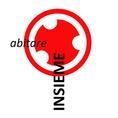habitability conferences landscapes scenarios welfare giornata di studi inu history call for papers citizenship regulation maps climate change architecture periodic news cartography globalization newsletter fragile territories inclusive processes safety & security urban theory competition demography representation premio tesi di laurea
1 October 2015 – 2 October 2015
International Conference LIVING TOGETHER | CALL FOR PAPERS
Naples, Italy
NEW! CALL FOR PAPERS DEADLINE: MAY 22nd, 2015
Dipartimento di Architettura | Federico II Naples University
INTERNATIONAL CONFERENCE LIVING TOGETHER
October, 1-12, 2015
The DiARC - Department of Architecture of Federico II University of Naples promotes a cycle of meetings aimed at comparing researches, urban plans and designs concerning principale topics related to the enhancement of human environment, social space design and territorial governance.
THEME OF THE CONFERENCE
The global crisis of our development model coincides, in many ways, with the crisis of the person and collective values belonging to the present civilization stage. This phase, influenced by the production/consumption cycle, although overriding in guiding life styles and city growth, is gradually leaving in the background civil contents and shared cultural dimensions.
Various forms of individualism and competitiveness mechanisms among people have inevitably corroded collaborative practices and shared visions of life: on the one hand, they are weakening internal links among citizens and places or leading to a commoditization of the collective dimension of living; on the other, they are marginalizing actions and practices aimed to the construction of commons. [...]
Managing the innovation both technically and politically, and taking into account the contemporary mobility of resources means to work on a complex mosaic of interacting dimensions which, from the scale of the building and the square, to the district, the city or the urban region, are settling the effects of the space production and reproduction cycle, metabolizing it through social, cultural and ecological dimensions.
Thus, social interactions are not to be considered either utopia or repetitive ritual of associated life but, rather, a challenge for actions focusing on cooperation as a way to achieve mutual benefits, including the revival of a perspective on space and architecture involving planners, administrators and inhabitants.
This is a knowledge that demands common grounds where, in search for devices to share evolving perspectives of architecture and city, different disciplinary skills are to be interwoven with innovative forms of collaboration with users.
If, indeed, practicing architecture means to give place, shape and size to inhabited spaces by returning urban images that are rooted in the traces of our forefathers and settings around which unedited forms of identity will strengthen, "Living together" means trying to share remains and permanencies with new languages for the project.
In a growing integration between planning and management of transformations, the governance of built environment regeneration processes should determine, in other words, such effects on society and livability of spaces to encourage demands helpful to set up innovative supplies for the project and the plan.
In conclusion, the central role of architectural and urban design finds, in the wellness satisfaction, environmental protection and resource efficiency, some strategy factors to tackle the economic, energy and climate critical aspects that risk to become conflicting and unbalanced sources for regions and communities foreseeable future.
TRACKS | SESSIONS
• T1: COLLABORATIVE URBAN DESIGN AND PLANNING
[...] The track calls for the exploration of the different notions for "public" that are entering the contemporary age, looking forward potentials and development perspectives related to the collaborative dimension that the new urban question is posing to the city, the urban region and the inhabitants.
• T2: LIVING IN THE CITY: RE-COMPOSING ARCHITECTURE
[...] Perhaps now architects, after having resumed research that aims to investigate on many aspects of collective living, have to think if (and how) the consolidated disciplinary theories and tools of the project can fulfill this request. [...]
• T3: INNOVATIONS AND INCLUSIVE PROCESSES FOR THE SUSTAINABILITY OF BUILT ENVIRONMENT
[...] The actions for the built environment sustainability should cross the emerging conditions of urban critical flaws, that adversely affect employment, health, welfare, living together. "Living together" has, therefore, to be achieved through the use of appropriate technological processes in order to overcome the social and environmental "destabilization" due to the persistent energy, economic and climate crises. [...]
IMPORTANT DATES
• March 16th 2015 | Call launch
• May 11th 2015 | Abstract submission
• June 5th 2015 | Acceptance notification
• July 20th 2015 | Paper delivery
• October 1st-2nd 2015 | International Conference
SCIENTIFIC COMMETTEE
• Antonella Falotico
• Nicola Flora
• Francesco Domenico Moccia
• Maria Federica Palestino
• Sergio Pone
• Francesco Rispoli
• Michelangelo Russo (scientific coordination)
• Sergio Russo Ermolli
• Paola Scala
ORGANIZING SECRETARIAT
• Alessandra Acampora
• Antonia Arena
• Annie Attademo
• Eduardo Bassolino
• Marica Castigliano
• Mara D'Avino
• Marika Miano
• Camillo Orfeo
• Mirko Russo
• Cristina Visconti
TECHNICAL SECRETARIAT
• Rita Ercolino • Eleonora Di Vicino • Marco Facchini • Mauro Scala • Pasquale Scotto Rosato
ADMINISTRATIVE SECRETARIAT
• Antonietta Paladino • Patrizia Argy • Flavia Santocchio
INFORMATIONS & CONTACTS
Email: abitareilfuturo.diarc@unina.it
Telephone: +39 081 2538743, +39 081 2538725
Fax: +39 081 2538717
Event schedule:
- Start: 10-01-2015
- End: 10-02-2015.




Planum
The Journal of Urbanism
ISSN 1723-0993
owned by
Istituto Nazionale di Urbanistica
published by
Planum Association
ISSN 1723-0993 | Registered at Court of Rome 4/12/2001, num. 514/2001
Web site realized by ChannelWeb & Planum Association | Powered by BEdita 3

